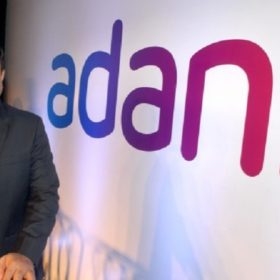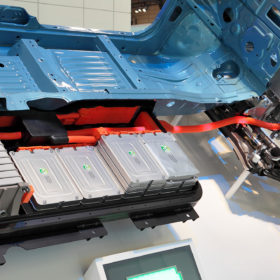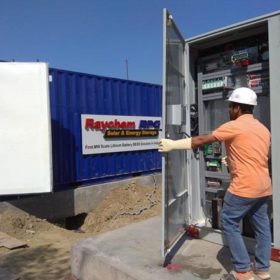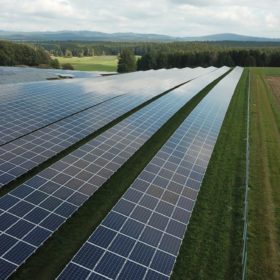Adani chief talks solar and hydrogen storage opportunity
Covid-19 crisis has provided system operators with insights on keeping the grid stable with high levels of renewable penetration. Post Covid-19, this may be the new norm, Gautam Adani said in a LinkedIn post recently.
Tata Power aims to set up 700 EV charging stations this fiscal
Under the brand name EZ Charge, Tata Power has already installed 170 fast and smart-charging points for electric vehicles in more than 20 cities across the country.
Used EV batteries for large-scale solar energy storage
MIT scientists have suggested used electric vehicle batteries could offer a more viable business case than purpose-built systems for the storage of grid scale solar power in California. Such ‘second life’ EV batteries, may cost only 60% of their original purchase price to deploy and can be effectively aggregated for industrial scale storage even if they have declined to 80% of their original capacity.
NTPC, ONGC sign MoU to set up renewable energy JV
As per the MoU, the state-owned power producer along with the oil and gas producer shall explore setting up of renewable energy projects in India and overseas, and sustainability, storage, e-mobility and ESG (Environmental, Social and Governance) compliant projects.
Globally, electric vehicles show more resilience than conventional cars during Covid-19 shock
EV sales are set to be 1.7 million off because of the economic fallout of the Covid-19 crisis, however analyst BloombergNEF predicts that will be less of a hit than the anticipated fall in sales of conventional cars, increasing the penetration of electric models into the overall market.
India’s renewables-plus-storage tenders mark a new beginning with highly competitive tariffs: NSEFI
The recently concluded 400 MW renewables auction to supply 24-hour electricity saw winning bid of INR2.90/kWh—a new milestone after peak+off-peak tariff of INR4.07 was achieved in January’s 1.2 GW auction demanding assured power supply during peak demand hours.
Covid-19 can impact electric vehicle demand
Industry body FICCI has recommended an extension of the FAME II Scheme by at least one year to 2023 as it feels change in the consumer behavior can impact the demand for electric vehicles (EVs) in the short term.
EU, India invite joint research proposals on integrated local energy systems
The projects shall be co-funded by India’s Department of Science & Technology and the European Commission’s Innovation and Networks Executive Agency. The aim is to make energy supply cleaner, more efficient and affordable by smartly integrating large amounts of renewable energy in local energy systems. Proposals can be submitted till September 1.
Renewable power poised for a big leap with storage technologies
While the solar and storage pairing is still relatively new, the growth over the next five years will be significant globally. As against just 5% in 2019, by 2025 more than 25% of all behind-the-meter solar systems will be paired with storage.
LCOE from large scale PV fell 4% to $50 per megawatt-hour in six months
Analysts at Bloomberg New Energy Finance say the lowest-cost projects financed in Australia, China, Chile and the UAE in the last six months hit a levelized cost of energy of just $23-29/MWh and the best solar and wind projects will produce electricity for less than $20/MWh by 2030.













